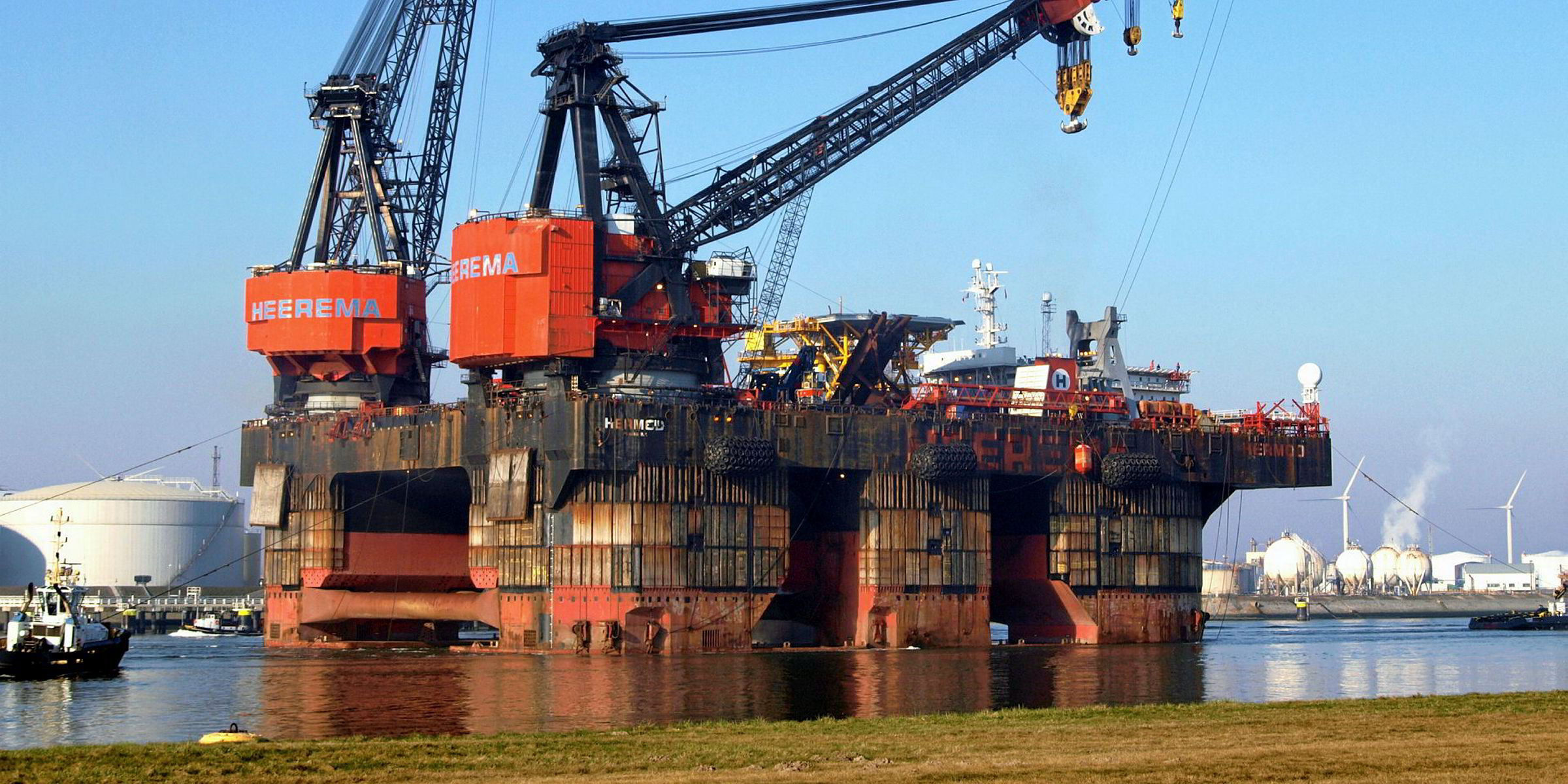Environmentalists are claiming the planned demolition of the 73,800-gt offshore vessel Hermod (built 1979) is in violation of waste export, environmental and safety laws, despite its owners winning government approval for the move.
The outcome of the dispute could prove critical for vessel operators, as dozens of ships and rigs of a similar age are lined up for demolition over the coming years as part of decommissioning the North Sea fleet.
The Hermod, the world’s first semi-submersible crane vessel, is now heading for demolition in China on the Dockwise Vanguard (built 2013).
The owner, Netherlands-based Heerema Marine Contractors, insists it has made every effort to comply with waste regulations and meet high standards of safety and environmental protection. The company is known for its strong social responsibility policy.
Export approval was granted by the government of the Netherlands, suggesting the sale is in line with its European Union (EU) regulations.
In a statement Heerema said: “The demolition of the Hermod will be performed in a safe and responsible way, in accordance with the Hong Kong International Convention for the Safe and Environmentally Sound Recycling of Ships (Hong Kong Convention) and in line with the EU's Ship Recycling Regulation (SRR).
“The Chinese demolition yard Zhoushan Changhong International Ship Recycling Co has been selected based on its track record and its ability to deliver in accordance with the above mentioned standards. About 98% of the vessel materials will be recycled and reused.”
However, the Brussels-based environmental lobby group NGO Shipbreaking Platform points out that neither the Hong Kong Convention nor the SRR have yet entered into force.
And while Zhoushan Changhong has applied to be on the EU list of approved shipbreaking yards under the SRR, the auditing process has not yet been completed.
NGO Shipbreaking Platform tells TradeWinds it believes the rules that should apply to the sale of the Hermod are those covered by the EU's Waste Shipment Regulation, which is based on the Basel Convention.
Those regulations require waste exported from Europe be disposed of by a state that is a member of the OECD. China is not a member.
But Heerema explains that the European waste export regulations do not apply to the Hermod.
“From the perspective of the Basel and European Waste regulation, the Hermod is exported as a vessel and not as hazardous waste. As such, the recycling of the Hermod is fully compliant with all current and future regulations,” a company spokesperson said.
The spokesperson adds that the breaking yard was selected after a strict auditing process.
"The Chinese yard emerged from this process as the most suitable in terms of capacity and ability to safely accommodate such a large vessel and deliver an environmentally sound recycling plan."
The spokesperson also points out that the company has made a positive decision to comply with the Hong Kong Convention and European SRR even though they have not entered into force.
Resolution as to which regulations should apply is pressing.
The decommissioning of fixed structures is generally governed by Ospar, a group of 15 North Atlantic and EU countries established to protect the region's marine environment.
But the SRR will come into force from the end of 2018 and will apply to all European-flag offshore vessels issued with an International Maritime Organization number.
Commenting on the Hermod case, NGO Shipbreaking Platform’s Ingvild Jenssen told TradeWinds the case is a “clear call” for the European Commission (EC) to make progress with its list of approved yards.
The EC has yet to come up with a list of non-EU yards approved to demolish European-flag ships. It is studying applications from China, Turkey and India.
To date, the EC has included 18 demolition yards, all based in the EU and approved by their national authorities.
There are signs European authorities may soon be ready to carry out criminal sanctions against shipowners that export vessels in violation of the Basel and EU waste export regulations.


